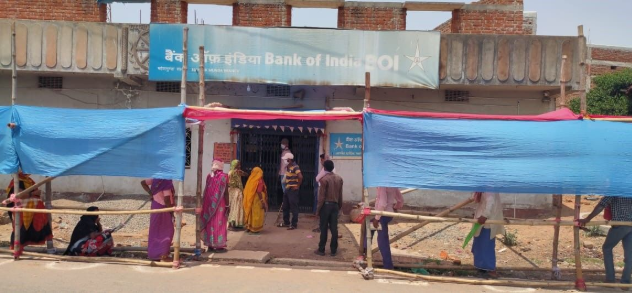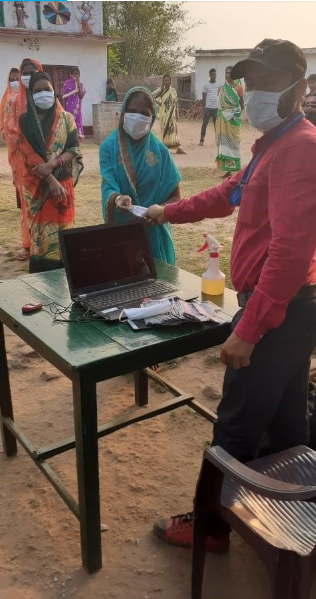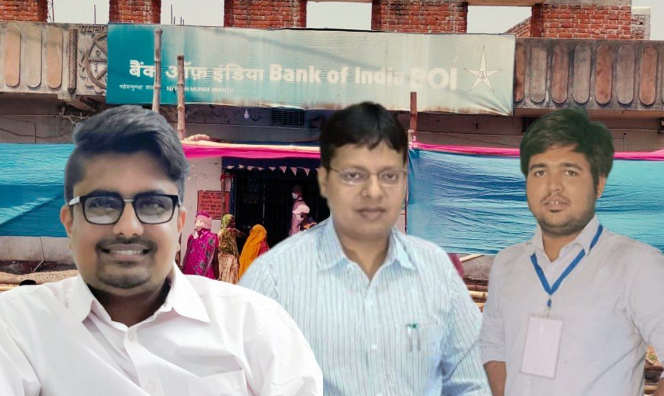Jharkhand: After the outbreak of the COVID-19, the following lockdown gravely affected the people living in both urban and rural areas. However, the rural areas had to face extra challenges due to the less availability of financial resources and underdeveloped infrastructures. Giridih, a district in Jharkhand faced similar issues but came out of it quickly under the management and improved governing measures taken up by the dynamic District Commissioner, IAS Mr. Rahul Kumar Sinha.
The problem faced by the district:
The District has only 155 bank branches for a population of more than 25 lakh spread across 2,772 villages and 358-gram panchayats. The villagers, especially the olds, women, and pensioners were facing an acute shortage of cash for their day to day needs, as the banks opened only for a short time. Social distancing was another challenge and the unavailability of public transport added to the problems faced by far-flung villages.
Moreover, the problem got worse when fake news and rumours peddled in, “There had been rumours that the amount provided under PM Garib Kalyan Yojana was pulled back by the Government when public delayed to withdraw it immediately”. This issue came into light after the reports of three members team consisting of the Lead Bank Manager (LDM) Ravindra Kumar Sinha and Aspirational District fellows, Pankaj, and Satyaki who did rigorous field visit to understand the ground challenges.
The fake news caused a heavy rush in banks despite lockdown.
The solution developed by the Officials:
To ensure cash availability to the villagers and reduce the banking rush, district administration led by Deputy Commissioner Rahul Kumar Sinha and his team came up with the initiative of ‘Bank at your Doorstep’. The administration came up with plans for easy availability of cash for the villagers by maintaining the rush and following the lockdown norms.
Following steps were taken:
The brick and Mortar banks were operated at different time slots for children, elderly, widows, and specially-abled. Younger people were asked to visit the banks in the afternoon whereas specially-abled were asked to visit in the morning.
The Banking correspondents (BCs) were placed in Gram Sevak Kendra at every 5 Kms. BCs acted like mini banks where Aadhaar enabled account holders were paid cash on demand. The beneficiary’s account details were entered and the BCs would note the transaction details and hand over cash to the beneficiary.
Social distancing was ensured in the Banks by marking circles in the queues at sufficient distances. Chairs were provided for older people and Pavillion shades were made for women and olds.

The water bell was set up inside the banks, which rang at intervals to facilitate the Bank coordinators to provide water to the standing queue outside the bank.
To reduce the rush Token system was introduced and people who came to check their bank details were provided with helpline numbers.
While the Banks operated in the buildings, the BCs provided cash to the account holders in Grahak Seva Kendra. BCs had to carry ₹ 40,000-50,000 in every 4-5 days interval. They were provided with one security official to ensure safety in cash settlements.
BCs were instructed to carry sanitizer, biometric devices, and laptops along with them to the doors of beneficiaries. Women’s participation from SHGs also aided in the implementation of this initiative.

The District Administrations’ attempt in giving money at the period of critical scarcity is a case of good administration. The initiative through Bank Correspondents has so far connected with about 50% of the total 5,56,948 account holders of PMJDY beneficiaries in the area. The Aspirational District Fellows played a key job in planning this initiative. The achievements of this initiative have helped in re-establishing the confidence of individuals in the Government and its administration.
[zombify_post]




